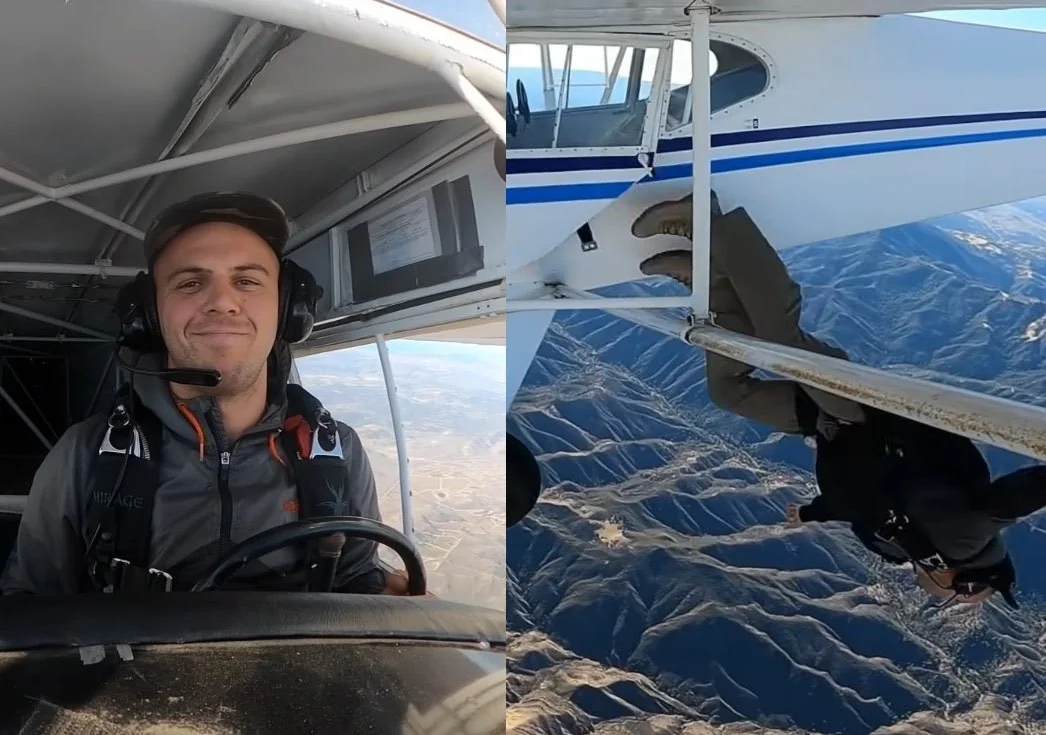YouTube personality, Trevor Jacob, 30, from Lompoc, California, has been sentenced to six months in a federal prison for deliberately crashing his airplane as part of a stunt to gain views and secure a sponsorship deal.
Earlier this year, Jacob entered a guilty plea to one charge of destruction and concealment with the intent to obstruct a federal investigation.
In November 2021, Jacob made his Taylorcraft BL-65 aeroplane intentionally crash. He then uploaded the footage to YouTube under the title “I Crashed My Aeroplane,” which received 2.9 million views before going private.
About 35 minutes after the aircraft took off, Jacob was seen in the video jumping out of the aircraft, NBC News reports.
He then told lies about the crash to investigators and an FAA safety inspector.
The investigators from the National Transportation Safety Board had initially reached an agreement with Jacob to provide the crash location and videos.
He subsequently made up a claim that he was unaware of the location and that he had moved the wreckage using a chopper before destroying it.
According to the plea agreement, Jacob planned to use the video to pursue a financial gain sponsorship deal with an unidentified wallet manufacturer.
The FAA suspended Jacob’s pilot licence in April 2022 due to his conduct.
The case’s prosecutor, Assistant U.S. Attorney Dominique Caamano, underlined the possible risk of these antics by saying, “If you’re going to do something against the law, there’s going to be a consequence.”
Jacob expressed regret and said, “This experience has been so humbling,” in a statement given by his lawyer.
“I’ve discovered more about who I am than I ever would have in my previous existence. I’ve learned from my mistakes and am eager to mentor young people and become a valuable member of society. I am eager to use my six-month prison sentence to further my positive personal development.”
According to the sentencing memorandum that the Justice Department referenced, Jacob’s actions showed “exceptionally poor judgement” and were probably motivated by a desire for money and social media attention.
The prosecution claimed that such “daredevil” behaviour was unacceptable.

 Join Daily Trust WhatsApp Community For Quick Access To News and Happenings Around You.
Join Daily Trust WhatsApp Community For Quick Access To News and Happenings Around You.